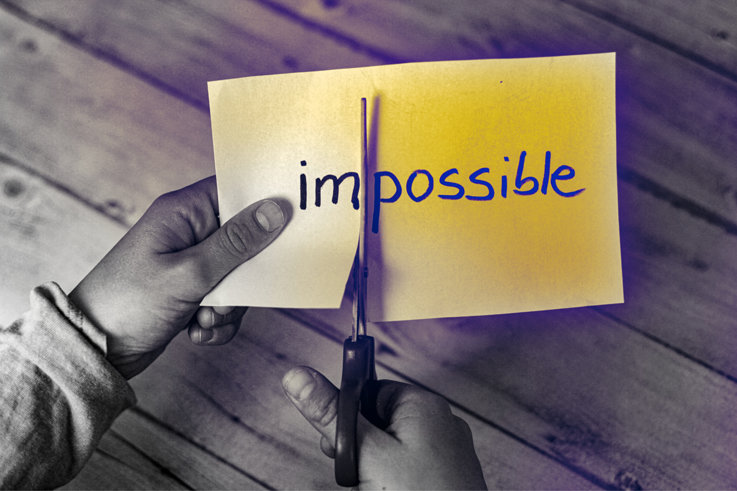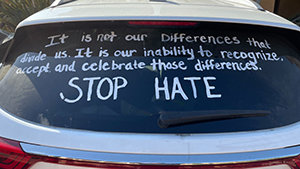
-
HOME
-
WHAT IS STANDOur Mission Our Values Our Help Contact
-
WHAT WE FIGHT FORReligious Freedom Religious Literacy Equality & Human Rights Inclusion & Respect Free Speech Responsible Journalism Corporate Accountability
-
RESOURCESExpert Studies Landmark Decisions White Papers FAQs David Miscavige Religious Freedom Resource Center Freedom of Religion & Human Rights Topic Index Priest-Penitent Privilege Islamophobia
-
HATE MONITORBiased Media Propagandists Hatemongers False Experts Hate Monitor Blog
-
NEWSROOMNews Media Watch Videos Blog
-
TAKE ACTIONCombat Hate & Discrimination Champion Freedom of Religion Demand Accountability
The Leap of Faith That Banishes Hate
“We’ve managed to survive for some time now, catch as catch can, the fat and the lean, and if the dinosaurs don’t trample us to death, and if the grasshoppers don’t eat up our garden, we’ll all live to see better days, knock on wood.”
—Sabina in Thornton Wilder’s play The Skin of Our Teeth
My mom used to complain that I did things the hard way.
I believe that she got that opinion when she caught me, at age five, singing a lullaby to myself. I couldn’t fall asleep, so instead of bothering anyone, I just took it upon myself to do the job, and sang myself to sleep. The problem is that (a) I was singing LOUDLY—and it was already 2 a.m., and (b) the lullaby was one of my invention, the complete lyrics of which were “Go to sleep, you stupid %$#&!” repeated over and over.

Doing things the hard way has been my MO, which probably explains why the entry on my résumé that I’m proudest of is “Practicing Optimist.”
Being an optimist is hard, but it has its rewards. One optimist, for example, even won the Pulitzer Prize.
So yes, how you feel today DOES affect the world.
It was four score and one Novembers ago, in 1942, amid the bloodiest, deadliest war in history. Thornton Wilder’s play, The Skin of Our Teeth, opened on Broadway. It followed the adventures of the Antrobus family—Mr. and Mrs. Antrobus, their children, Henry and Gladys, and their housekeeper, Sabina. All in all, just your “typical” suburban New Jersey family as they eke through thousands of years of Ice Ages, flood, famine and a devastating apocalyptic war—all by the skin of their teeth. The message of hope that we’ll always manage to get by, if only barely, resonated with audiences, and the play—optimistic message and all—was awarded the Pulitzer Prize.
Generations later, in 2022, the play was successfully revived on Broadway, its message of optimism still resonating in our own time.
Optimism is a good thing, and mounting evidence indicates that it is desirable—nay, crucial.
Princeton University’s Global Consciousness Project has been tracking world response, as measured on several dozen generators worldwide, to some 500 significant events since 1998—everything from New Year’s celebrations to airplane crashes to declarations of war to Olympic upset victories to 9/11 to deaths of beloved icons. The researchers concluded that when the people of Earth generate a unified emotional response, it does something—something measurable. When there is no major news story (described in the experiment as a “rigorously defined event”), the measurements remain level. Only when GREAT things happen—great-awful or great-wonderful—do the dials on the generators move. The researchers conclude that “the odds against chance are more than a trillion to one.”
Their conclusion: “Large-scale group consciousness has effects in the physical world. Knowing this, we can intentionally work toward a brighter, more conscious future.”
So yes, how you feel today DOES affect the world. Look over your life. Look at the times of happiness that sparkle through your memory like sunlight dancing on a lovely lake. Joyous meetings, goals achieved, moments of health and well-being, pride in achievements, time spent with loved ones. When you remember these things and realize that survival is possible and that life was constructed with joy as an essential component after all, you—yes, you—are moving those Princeton University generators that bit further away from NO and that much closer to YES.
Sure, there’s plenty to worry about. There’s always been plenty to worry about, and likely, there will continue to be plenty to worry about for the foreseeable future. The media and the prophets of doom (it’s difficult to tell the difference between them) all make hay from our worry. So that’s a given that won’t change. But you can.
Believe what you will, we all still live and love under the same sun, moon and stars, though our prayers may differ, as well as our aspired-to heavens. And the fact remains that while it is easy—and often profitable—to be a pessimist in these times, it takes hard work and faith to be an optimist. What would happen if we all did the work and took that leap of faith? Would we create our own “rigorously defined event” and change the world?
Be daring. Vote for the happy ending, no matter how unlikely and illogical, because life itself is unlikely and illogical.
Are you up for the challenge?









